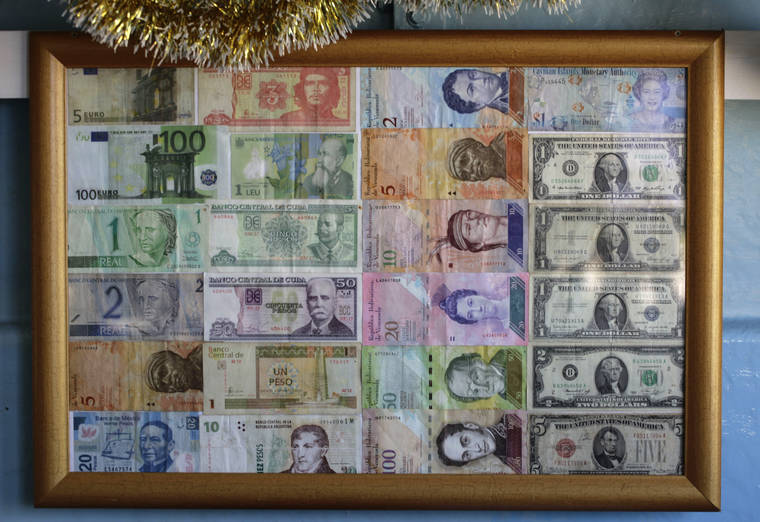HAVANA — The Cuban government says it will allow citizens to use 10 foreign currencies to buy products like televisions and air conditioners at state stores in an attempt to compete with a multi-billion-dollar informal market in imported goods.
The communist state has a monopoly on most forms of retail sales and all wholesaling, import and export. The only legal vendors of appliances like refrigerators and air conditioners are state stores that charge as much as 200 percent of the average global price for generally low-quality Chinese-made products that are often out of stock.
That has led to an illegal but tolerated black market in goods purchased abroad by individual Cubans and resold at a profit on the island. Thousands of Cubans each year fly to shopping districts catering to them in countries ranging from Panama to Haiti to Russia. By some estimates, the sellers known as “mules” spend some $2 billion a year overseas, a major outflow of hard currency from an island already in a serious cash crunch.
Cuban officials announced Tuesday night that the prices of some consumer goods would drop for Cubans who create special new hard-currency bank accounts denominated in U.S. and Canadian dollars, Euros, British pounds, Swiss francs, Mexican pesos, Danish, Norwegian and Swedish kroner and Japanese yen.
Cubans will also be able to use the accounts to import goods through state-run companies, officials said on national television, although the precise mechanism for those private-public imports remains unclear.
Products that will be available for foreign currency include 43-inch flat-screen televisions, standing freezers, refrigerators and mini-split air conditioners. The discounts over current prices appear to be marginal — Reports in state media indicated that the government would still charge some 75 percent above the wholesale price. A 43-inch Samsung television, for example, would sell for $549, state media said, about twice the cost of a similar item in the U.S.
“Money is leaving the country in significant amounts to acquire these products and we need to capture it as a source of hard currency to restock our industrial base, our retail stories, our market,” Vice President Salvador Valdés Mesa said in an appearance along other government ministers and high-ranking economic officials.
Cubans who open hard-currency accounts will be given a bank card used to purchase discounted goods. The move adds a new complication to Cuba’s unusual multiple-currency system. Cubans currently use Cuban pesos worth about 4 cents each and convertible pesos worth about a dollar.
Cuba has been hard hit by the collapse of its main ally, Venezuela, and the hardening of U.S. sanctions under President Donald Trump. The state-run economy is constantly short on cash and, because it is highly dependent on exports that must be paid in hard currency, Cuba has been hit by regular shortages of basic goods ranging from gasoline to chicken over the last year
“The economy needs a push, a reactivation of our national industry. There’s demand there,” Economy Minister Alejandro Gil said.
Officials said the new program would start this month in 12 pilot stores and increase to 77 across the country over time.





